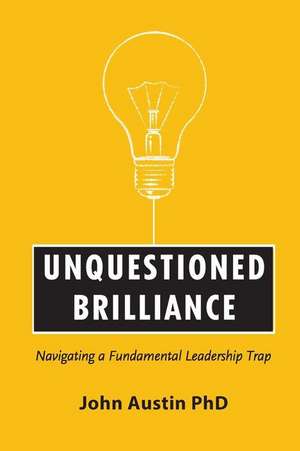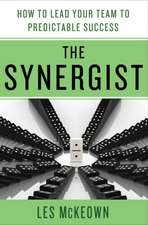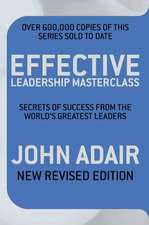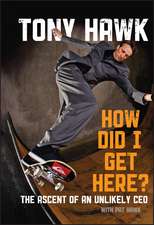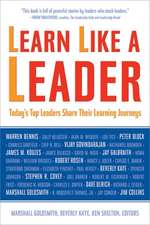Unquestioned Brilliance
en Limba Engleză Paperback
Preț: 103.92 lei
Nou
Puncte Express: 156
Preț estimativ în valută:
19.89€ • 20.69$ • 16.42£
19.89€ • 20.69$ • 16.42£
Disponibil
Livrare economică 24 martie-07 aprilie
Preluare comenzi: 021 569.72.76
Specificații
ISBN-13: 9780996703703
ISBN-10: 0996703705
Pagini: 222
Dimensiuni: 152 x 229 x 13 mm
Greutate: 0.33 kg
Editura: Fisher Baldwin Press
ISBN-10: 0996703705
Pagini: 222
Dimensiuni: 152 x 229 x 13 mm
Greutate: 0.33 kg
Editura: Fisher Baldwin Press
Notă biografică
John Austin works at the intersection of scholarship and practice as a professor in the School of Leadership Studies at Fielding Graduate University. Prior to that, Dr. Austin was a Principal at Decision Strategies International and a management professor at Penn State University and The University of Washington. He has taught executives at Georgetown University, Thunderbird School of International Management, Duke CE, and The Wharton School and he continues to teach executives at The University of North Carolina. John has worked with numerous Global Fortune 500 companies, government agencies and business schools as an executive development resource and is a frequent conference speaker. Dr. Austin has a B.A. in economics from The Johns Hopkins University and a Ph.D. in management from Boston College. He is a thought leader in the areas of team leadership, organizational change implementation, and strategic decision-making. His research on knowledge-based decision making teams is widely cited in the academic literature, as is his work on the strategic actions of internal change agents. Dr. Austin's work on knowledge transfer in managerial teams has been used to develop executive teams around the world. Dr. Austin is an experienced facilitator and an award-winning teacher who has worked with practicing executives on six continents. John has developed leaders and led long-term projects in the areas of change management, scenario planning, team performance, strategic decision-making, and strategy execution. His experience with individuals at all levels of organizations enables him to translate broad strategies and concepts into actionable, engaging programs. Dr. Austin's research has been published in leading management and applied psychology journals including Journal of Applied Behavioral Science, Journal of Applied Psychology, and Organization Science as well as practice-oriented publications including HR Magazine and The OD Practitioner. John's work has been recognized with three Best Paper awards from the Academy of Management and has been mentioned in a number of media outlets including CNN, The Wall Street Journal and Barron's. He is the author of Leading Effective Change: A Primer for the HR Professional published as part of the SHRM Foundation's Effective Practice Guidelines Series (2015). Dr. Austin's book, Unquestioned Brilliance: Navigating a Fundamental Leadership Trap, was published in fall 2015.
